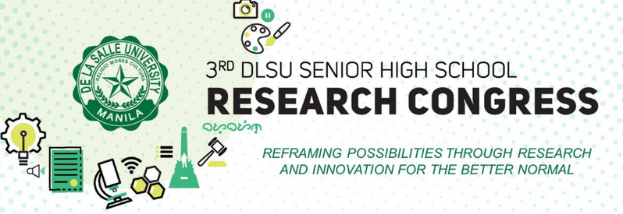Document Types
Poster Presentation
School Name
De La Salle University Integrated School, Manila
Start Date
30-4-2021 11:00 AM
End Date
30-4-2021 12:00 PM
Abstract/Executive Summary
This paper seeks to study student activism by focusing on how parents' perception of their activism affects their political actions and decisions. Six students from three undergraduate student activist organizations across Metro Manila were purposely sampled to participate individually in a semi-structured interview developed around the concept of attitudes categorized into three components: the behavioral, the cognitive, and the affective. Thematic analysis reveals that parents generally tend to negatively perceive activism, which does not necessarily affect students' decision to continue activism despite accompanying emotional burdens. The findings ascertain that parents employ various parenting styles from rational to authoritarian and emotions such as worry and rage in reaction to their child’s activism. Moreover, the participants were found to apply values such as tireless persuasion and discretion to negotiate conflicting perceptions of their activism with their parents.
Keywords
student activism; political socialization; political behavior; perception; parental attitudes
Initial Consent for Publication
yes
Perceptions of Parents’ Attitudes towards Activism and its Impacts on the Political Behavior of Undergraduate Student Activists
This paper seeks to study student activism by focusing on how parents' perception of their activism affects their political actions and decisions. Six students from three undergraduate student activist organizations across Metro Manila were purposely sampled to participate individually in a semi-structured interview developed around the concept of attitudes categorized into three components: the behavioral, the cognitive, and the affective. Thematic analysis reveals that parents generally tend to negatively perceive activism, which does not necessarily affect students' decision to continue activism despite accompanying emotional burdens. The findings ascertain that parents employ various parenting styles from rational to authoritarian and emotions such as worry and rage in reaction to their child’s activism. Moreover, the participants were found to apply values such as tireless persuasion and discretion to negotiate conflicting perceptions of their activism with their parents.


